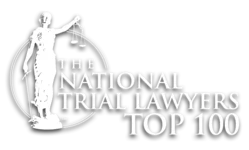
The court also ruled that the Virginia lower courts were not empowered to enforce a subpoena duces tecum for Yelp to produce documents located in its California headquarters database because it is not within the reach of the Virginia court jurisdiction.
The subpoena for Yelp’s database records was issued by Hadeed, a carpet cleaning company in Virginia. The business filed a defamation lawsuit against seven John Doe defendants for allegedly falsely claiming to be Hadeed customers and posting negative reviews about Hadeed’s services. The company served the subpoena to Yelp through its designated registered agent in Virginia, seeking the identities and information of the anonymous reviewers, according to court documents.
Yelp objected to the subpoena on First Amendment grounds, protecting the free speech right to speak anonymously, and on the grounds that Virginia had no jurisdiction over their headquarters and documents in California.
The circuit court issued an order enforcing the subpoena and subsequently held Yelp in contempt when it refused to turn over the identities of the anonymous reviewers. The Virginia court of appeals affirmed the decision, stating that the free speech rights of the reviewers “must be balanced against Hadeed’s right to protect its reputation.” Both courts relied on a Virginia State long-arm statute providing the exercise of its jurisdiction to nonresident corporations.
The Virginia supreme court abstained from any discussion of the First Amendment right to anonymous speech, only mentioning in a footnote that Yelp asserted that the enforcement of the subpoena was inconsistent with the First Amendment, that they “need not reach these assignments of error” because they held the court did not have authority to enforce the subpoena against Yelp anyway.
“Although we were hoping the court would rule on both jurisdictional and First Amendment grounds, this is still an important win,” said Paul Alan Levy, the Public Citizen attorney representing Yelp.
The court ruled only on jurisdictional grounds, stating that the enforcement of a subpoena for out-of-state information is “generally governed by the courts and the law of the state…where the documents are located,” and that Yelp’s designated registered agent and conducting business in Virginia, does not subject it to subpoena power by the state court. Hadeed would have to file his subpoena for Yelp in California, where its headquarters and the records are located.
“If Hadeed turns to California courts to learn the identities of its critics, those courts will require it to show evidence to meet the well-accepted First Amendment test for identifying anonymous speakers,” said Levy.
The well-accepted test is the Dendrite rule that establishes whether websites must reveal the identities of anonymous speakers. The factors of the test include:
The Hadeed carpet company has not indicated that the statements made on Yelp were false, but instead has argued that the reviewers, who they could not locate in its customer database, falsely claimed to be customers when they made the negative reviews. Hadeed is claiming the comments are defamatory because the reviewers lied about being customers and the service they received.
If Hadeed does file a subpoena in California, it would need to meet the factors above for a court to consider requiring Yelp to reveal its reviewers. According to Yelp attorney Levy, “so far, Hadeed has not come close to providing such evidence.”
The case is Yelp, Inc. v. Hadeed Carpet Cleaning, Inc., Case no. 140242 in the Supreme Court of Virginia.
